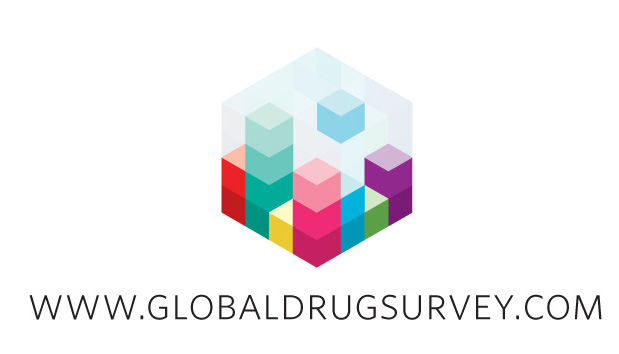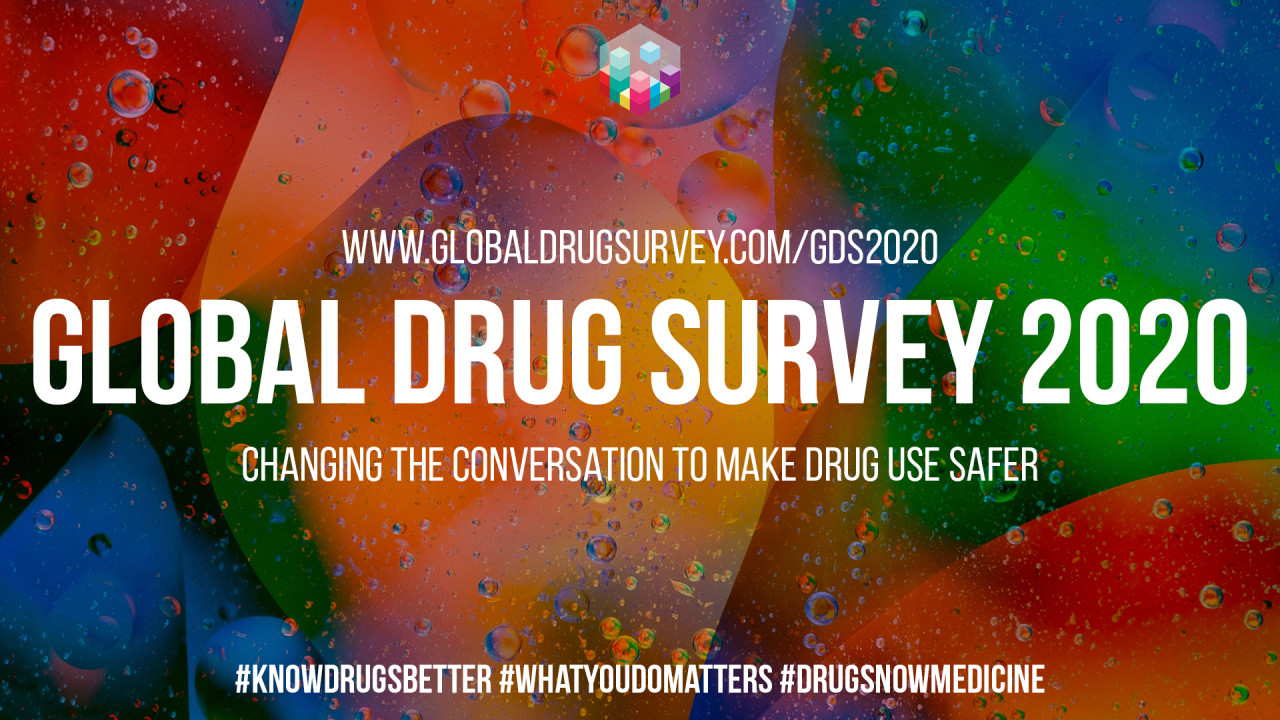Global Drug Survey 2020: What they're focusing on


www.globaldrugsurvey.com/gds2020 / Global Drug Survey 2020: Changing the conversation to make drug use safer. #knowdrugsbetter
NZ Drug Foundation is sharing details of the world's largest survey on drug use. The more we know about how, when and why drugs are being consumed, the better we can design and test advice about how people can stay safer.
This news item is published on behalf of the organisers of Global Drug Survey 2020:
Global Drug Survey (GDS) runs the world’s largest survey. Over the last 8 years more than 750,000 people have taken part in our annual, anonymous confidential survey. GDS2020 will be translated into 16 languages, with partners in over 30 countries. GDS believes that the expertise and experience of people who use alcohol and other drugs can be used to inform the creation of better drug policy, whilst helping people use drugs more safely, regardless of the legal status of the drug. This year, Global Drug Survey focuses on some of the major public health and scientific issues that have been making waves over the last 12 months.
Cannabis and alcohol: For cannabis we explore the rise of CBD products and their evolution from possibly the least interesting compound in cannabis (if you want to get high) to the new ‘cure all, wellness supplement’ finding its way into everything from skin creams, vapes and tablets to ice-cream, pet food and shampoo. As its medical potential becomes clearer, we follow up on the work we did in GDS2017 on cannabis as medicine, with a deep dive into what conditions people are treating with diverse cannabis products and how effective they consider them to be. For alcohol we focus on regrets when drunk and how alternative drinking guidelines might help some drinkers reduce their consumption.
MDMA: Molly or ecstasy comes back into focus this year. With continued widespread availability of high dose pills and high purity powders in many countries , it remains easy for people to take too much, making it more difficult for users to consume in safer ways. To answer the question, ‘what is the safest way to dose with MDMA over the course of a using session’, we’ll look at how different people dose and how this influences the balance between pleasures and harms. We can start to explore this issue more confidently since we now have data from human treatment trials that demonstrate that MDMA of known quality and dose can be used safely within clinical settings. We also know more about how bigger doses alter the way we break down MDMA and how bigger doses tend to shift the balance from pleasure towards unwanted effects.
Psychedelics: Last year we collaborated with psychedelic researchers to explore the acceptability of psychedelics and other drugs such as MDMA and ketamine in psychiatry. We found high rates of acceptance especially among those with prior experience of using them, although fears based on myths and outdated science, were evident among psychedelic naïve respondents. This year we follow up with an in-depth exploration of how people around the world currently self-medicate with drugs as diverse as LSD, Kambo, Ketamine, DMT and Ibogaine. We’ll be asking what conditions people were seeking to treat but also benefits, side effects and where reported, the role of supervision, from therapists, non-traditional healers and shamans.
Big night out: Our final area of focus is on the last big night out that people had and how variations in drug consumption, policy and access to harm reduction in different types of venues impact on people’s behaviour and risks. As usual we’ll be keeping an eye on drug prices and sources, the darknet, novel drugs and value for money as well as the rates of seeking emergency medical treatment following the use of different drugs.
Your experience and your help make GDS what it is: If you have used alcohol or any other drug in the last 12 months and want to help the world have honest conversations about drug use please take 20-30 minutes and share your experience with thousands of others in GDS2020 now at www.globaldrugsurvey.com/GDS2020
Recent news

Beyond the bottle: Paddy, Guyon, and Lotta on life after alcohol
Well-known NZers share what it's like to live without alcohol in a culture that celebrates it at every turn

Funding boost and significant shift needed for health-based approach to drugs
A new paper sets out the Drug Foundation's vision for a health-based approach to drug harm

Expert Pharmac committee recommends funding for overdose reversal nasal spray
The expert committee has said funding for naloxone in the community should be a high priority

